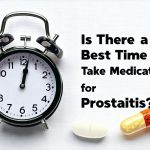Smart Fluid Intake Around Medication Times
Medication effectiveness isn’t always solely about what you take; often, how you take it – and when – plays a crucial role. We frequently focus on the prescribed dosage and timing, but less attention is given to the seemingly simple act of drinking water alongside our medications. Many people assume a glass of water with their pills is sufficient, but optimizing fluid intake around medication times can significantly influence absorption, reduce potential side effects, and ultimately maximize therapeutic benefit. This isn’t about dramatically changing your hydration habits, but rather making informed choices based on the specific characteristics of your medications and your individual needs. Understanding the interplay between fluids and pharmaceuticals allows for a more proactive approach to healthcare, empowering individuals to take greater control of their well-being.
The human body is a complex system where everything is interconnected. Medication absorption isn’t a passive process; it’s influenced by factors like stomach acidity, gut motility, and – importantly – the presence or absence of fluids. Different medications behave differently. Some require adequate hydration for proper dissolution and absorption, while others might be affected by excessive fluid intake. For example, certain drugs are better absorbed on an empty stomach with a full glass of water, whereas others should be taken with food to slow absorption and prevent gastrointestinal upset. Ignoring these nuances can lead to sub-optimal drug performance or even adverse reactions. This article aims to explore the principles behind smart fluid intake around medication times, providing practical guidance for maximizing your medication’s effectiveness.
The Science of Absorption & Hydration
Medication absorption is a multi-stage process that begins the moment you swallow a pill. It involves dissolution (the drug breaking down), absorption through the gastrointestinal tract walls, distribution throughout the body, metabolism (how the body processes the drug), and finally excretion. Each stage is impacted by hydration levels. – Dissolution: Many medications need to dissolve in fluids before they can be absorbed. Insufficient fluid can lead to incomplete dissolution, reducing the amount of active drug available. – Gastric Emptying: The rate at which your stomach empties influences how quickly medication reaches the small intestine, where most absorption occurs. Fluids can alter gastric emptying time; generally, water speeds it up, while food slows it down. – Kidney Function: Adequate hydration is vital for kidney function, which plays a crucial role in eliminating drug metabolites from the body. Dehydration can impair kidney function and potentially lead to drug accumulation. If you’re concerned about supporting proper kidney function, explore how maintaining adequate fluid balance contributes to overall wellness with balanced daily hydration.
Different types of medications require different hydration strategies. For instance: – Enteric-coated tablets are designed to resist stomach acid and dissolve in the intestines; taking them with too little fluid might hinder their journey. – Effervescent tablets rely on water to release carbon dioxide, aiding dissolution. – Some diuretics (water pills) intentionally increase urine production, requiring mindful hydration to avoid dehydration. It’s important to remember that these are general guidelines and specific instructions from your doctor or pharmacist always take precedence. The goal is to create an environment in the gastrointestinal tract that optimizes drug absorption while minimizing potential side effects.
Tailoring Fluid Intake to Medication Types
The concept of “one size fits all” simply doesn’t apply when it comes to medication and hydration. Let’s examine how fluid intake should be adjusted based on common medication categories. Medications for conditions like high blood pressure or heart failure often require careful fluid management because both dehydration and overhydration can impact their effectiveness. Diuretics, as mentioned earlier, necessitate increased water intake to counteract fluid loss. Conversely, medications used to treat gastrointestinal issues may benefit from specific timing with fluids – some are best taken with food and water to soothe the stomach, while others should be taken on an empty stomach for optimal absorption. Understanding your individual needs is key; consider exploring smart hydration plans tailored to specific health conditions.
Antibiotics also fall into this category: certain antibiotics can irritate the stomach, making them more tolerable when taken with plenty of water and potentially even food. Other medications, like bisphosphonates (used to treat osteoporosis), require a full glass of water and remaining upright for at least 30 minutes afterwards to prevent esophageal irritation. Pain medications, both over-the-counter and prescription, can also be affected by hydration levels; adequate fluids help the body process and eliminate these drugs efficiently. Always consult your pharmacist or doctor to understand the specific fluid recommendations for each of your medications. They are the best resource for personalized guidance based on your unique health profile and medication regimen.
Understanding Medication Instructions
Many prescriptions and over-the-counter drug labels include instructions about taking with or without food, but rarely do they explicitly detail optimal fluid intake. This is where proactive communication with a pharmacist becomes invaluable. Don’t hesitate to ask questions like: – “Should I take this medication with water only, or can I use juice or milk?” (Certain beverages can interfere with absorption.) – “Is there an ideal amount of water to drink with this pill?” – “Will taking this medication at the same time as my daily multivitamin affect its absorption?”
Beyond the label itself, pay attention to any accompanying patient information leaflets. These often provide more detailed guidance on potential side effects and interactions, including those related to hydration. It’s also worth noting that generic versus brand-name medications might have slightly different absorption characteristics due to differences in inactive ingredients; your pharmacist can advise you on this as well. Be a detective with your medication! Don’t assume anything – seek clarification when needed.
The Role of Food & Timing
Food impacts medication absorption in various ways. It can either enhance or hinder the process, depending on the drug’s properties. Some medications are best absorbed on an empty stomach because food can reduce their effectiveness. Others require food to slow down absorption and minimize gastrointestinal side effects. Timing your fluid intake alongside these considerations is crucial. For example, if a medication needs to be taken on an empty stomach with water, avoid consuming anything for at least 30 minutes before and after taking the pill. To further refine your timing, consider adjusting eating times to support medication absorption and overall well-being.
If a drug is best absorbed with food, drinking a glass of water with your meal can aid in dissolution and absorption. However, certain foods can also interfere with medication effectiveness – grapefruit juice, for example, interacts with many medications, altering their metabolism. Similarly, dairy products can bind to some antibiotics, reducing their absorption. Again, this highlights the importance of personalized guidance from a healthcare professional.
Staying Hydrated Throughout the Day
Optimizing fluid intake around medication times shouldn’t come at the expense of overall daily hydration. Aim for consistent hydration throughout the day rather than just focusing on those specific moments. A good starting point is to drink water whenever you feel thirsty and to incorporate fluids into your routine – with meals, before and after exercise, and during hot weather. – Carry a reusable water bottle as a visual reminder. – Set reminders on your phone to drink water throughout the day. – Include hydrating foods in your diet, such as fruits and vegetables. When considering how to best integrate hydration into your daily life, review smart food pairings that can contribute to balanced fluid intake.
Signs of dehydration include thirst, dry mouth, dark urine, fatigue, and dizziness. If you experience any of these symptoms, increase your fluid intake immediately. Remember that individual hydration needs vary based on factors like activity level, climate, and overall health. Listen to your body and adjust your fluid intake accordingly. Maintaining proper hydration not only supports medication effectiveness but also contributes to overall well-being.





















